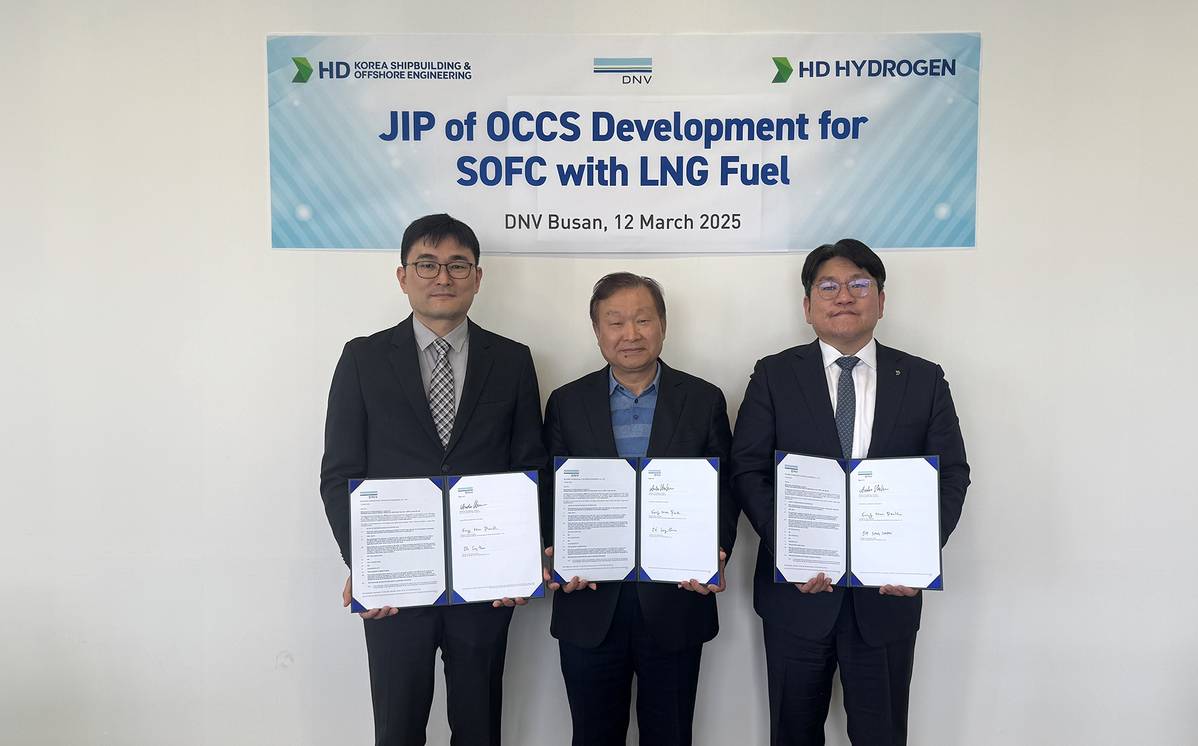Revolutionizing Maritime Carbon Emissions: Advancements in SOFC Technology
Key Ideas
- HD KSOE, HD Hydrogen, and DNV partner to develop PSA technology for carbon capture in SOFCs, aiming to revolutionize shipboard power generation.
- SOFCs, fueled by natural gas, ammonia, or hydrogen, offer high-efficiency electricity generation potential for maritime applications.
- Integration of PSA technology into SOFCs is expected to significantly reduce maritime carbon emissions, contributing to a more sustainable shipping industry.
- PSA technology demonstrates a 40% increase in energy efficiency compared to traditional CO2 absorption methods in marine settings.
In a significant move towards reducing carbon emissions in the maritime industry, HD KSOE, HD Hydrogen, and DNV have joined forces to develop and validate Pressure Swing Adsorption (PSA) technology for carbon capture in Solid Oxide Fuel Cells (SOFC). SOFCs, known for their high efficiency in generating electricity from fuels like natural gas, ammonia, and hydrogen, are now set to undergo advancements with the integration of PSA-based carbon capture technology. The collaboration aims to explore the possibility of replacing conventional ship propulsion and power generation engines with SOFC systems, ultimately aiming to cut down on maritime carbon emissions. The innovative PSA technology operates by selectively capturing and releasing CO2 through pressure variations within a capture chamber, offering a more energy-efficient alternative to existing CO2 absorption methods used in marine applications. This development signifies a positive step towards a more sustainable shipping industry, emphasizing innovation, energy efficiency, and collaboration in tackling environmental challenges.
